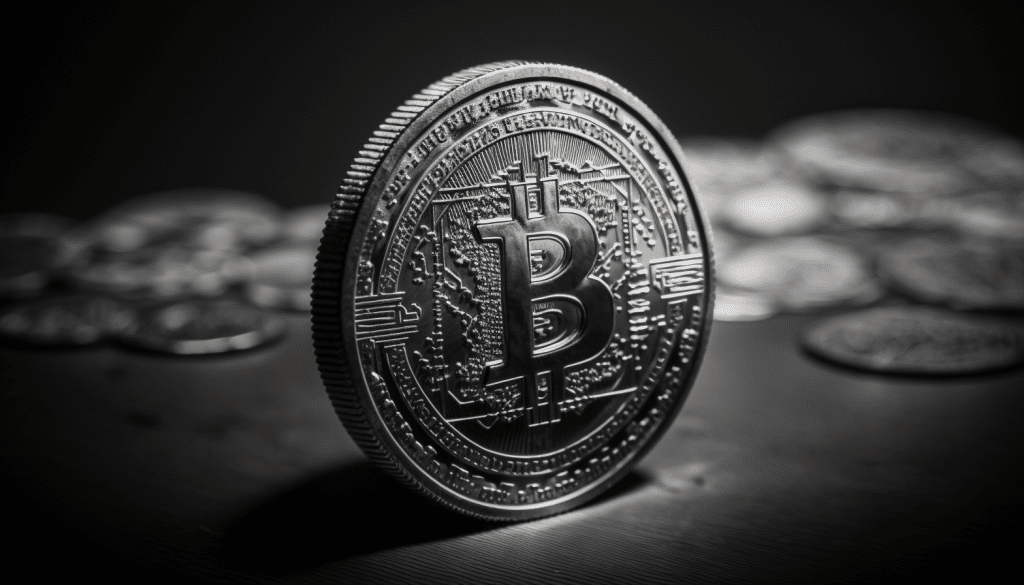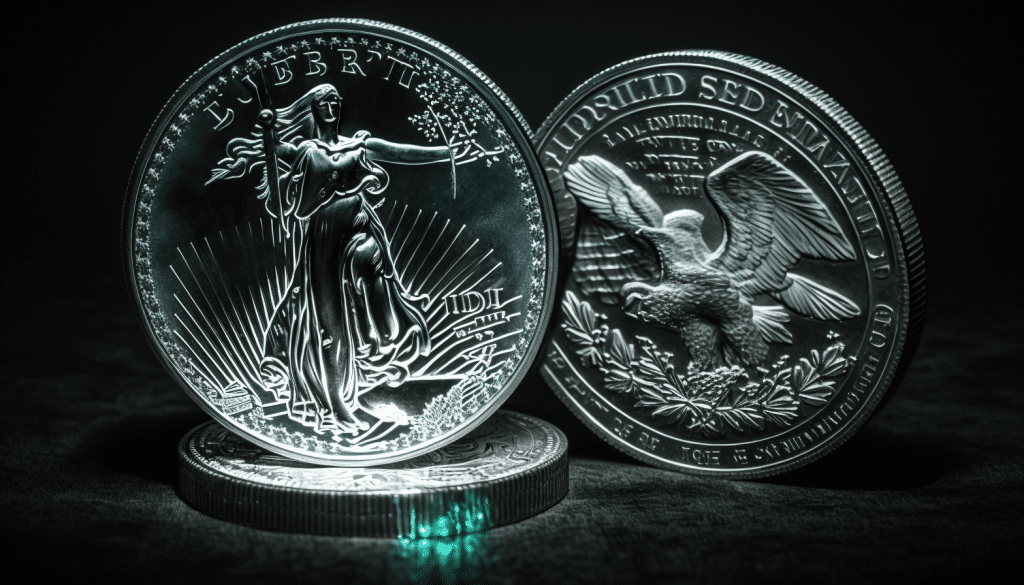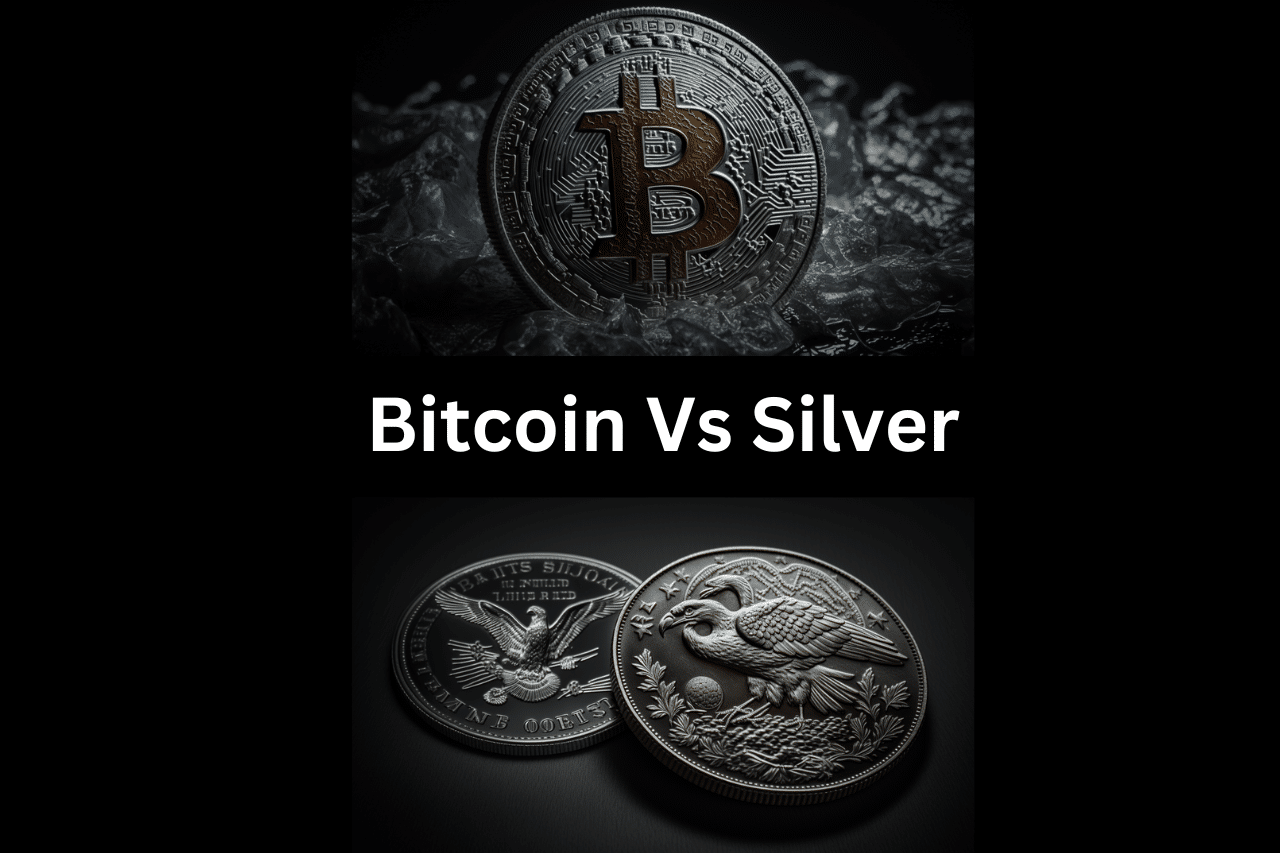Investing is a big part of getting a retirement fund, but the currency you choose matters. While many people picture investments to be nothing more than putting money into a business or market, there are actually a lot of different ways to invest – and currencies that you can invest in.
In most cases, the best investments come from anything that has a strictly limited supply. While stocks themselves are no joke, there are a lot of places to turn if you are looking for an all-time-high investment: two of which are Bitcoin and silver.
Why Compare Bitcoin and Silver?
Precious metals and digital currency can be more similar than you might think. There is a limited supply of both, both are mined (in different ways), and their potentially useful nature means that there will always be demand for them.
Bitcoin and silver investors also tend to use similar tactics for investing. While digital Bitcoin and physical silver are not in the same medium, they can be used in essentially the same way, and there is a healthy investment market for both.
Whether you are just beginning with investing or are trying to expand your existing investment portfolio, it is important to understand which currency you are most interested in investing in. There are more differences than you might think.
Differences to Consider
While precious metals and digital currencies are similar in a lot of ways, no two assets are the same. This means that it can be important to decide on which one you are buying, selling, and investing in early – especially for brand-new investors.
Storage
Storing Silver
You can only really store physical silver, gold, and other precious metals in a physical space. These assets require a place to store them, which can often mean extra fees or finance options depending on which groups you're working with.
Some central banks will often have silver and gold storage options (usually for standard forms like coins and bars), but most investors try to find independent investment options that can store their gold and silver bullion.
Storing Bitcoin
While you can retain cryptocurrency in digital wallets, there are two ways to go about this.
The first is through “hot” wallets, ones that are placed entirely online. These allow easy bitcoin trading and enable you to draw directly from your bitcoin account, but also increase the risk of something happening if a malicious third party can access your account.
“Cold” wallets are a lot safer but require a physical medium, such as a memory stick. Losing this stick means losing the entire value of your Bitcoin wallet.
Privacy
If privacy is a big concern, then physical gold and silver are ideal for you. Investors often use physical mediums to keep their transactions secure and private – stock can easily be looked through, but gold and silver can be placed anywhere in the world.
Bitcoin ledgers are open to the public, so Bitcoin assets are traceable. If you sell Bitcoin to somebody for real silver or gold, that transaction appears on the Bitcoin blockchain history since the Bitcoin market is meant to be open and fully transparent.
Diversification
Bitcoin is just one type of cryptocurrency, with the Bitcoin market being one of the most popular in the world. However, nothing is stopping you from buying other currencies with your Bitcoin in the future or even getting into mining that currency yourself.
Gold and silver are just two of many different precious metals that you can invest in, so silver is also a very diverse option. While it can't be mined yourself in the same way that Bitcoin can, you can always expand out from gold and silver in the future.
Risk
There is a risk with either market. Precious metal like gold and silver isn't cheap, but those assets will see price changes over time. Silver prices are based on a range of factors, and support from analysis experts is often a good idea if you want to maximize growth.
Bitcoin is also risky, but for different reasons. Analysis information is easy to track down, but Bitcoin has no physical stock or pinned value. It also isn't centralized, so there is no central Bitcoin authority to fall back on.
Volatility
Gold and silver prices are usually kept relatively stable since gold is used as an investment standard in many market areas – with silver being fairly stable too. Gold and silver will generally always have value, and established financial institutions will keep to that value precisely.
Bitcoin is far more volatile. Only its money value (i.e., dollar value) across the world matters, so your Bitcoin investment fluctuates a lot more often – sometimes in a good way, sometimes in a bad way. Bitcoin is more like stocks since the price point of stocks will rise and fall based on a lot of individual factors.
Should Physical Silver Investors Also Try Bitcoin?
Silver is more volatile than gold and tends to be cheaper, with more direct ties to the industrial markets. This means that it's far more likely to fluctuate in price and veer away from its past value.

This can be similar to Bitcoin in many ways, although crypto tends to be far more volatile. There is still an argument to be made for the two being quite similar, even if the price chart changes of cryptocurrency are more severe than the silver chart.
This also gives you a very diverse portfolio compared to just relying on stocks, bonds, CDs, and other cash options. Bitcoin can be bought from crypto exchanges using simple on-page options like PayPal. Thanks to this, the issuance of BTC has become a lot more accessible to regular people.
Should Physical Gold Investors Also Try Bitcoin?
Gold is a lot more stable than silver, acting more like a baseline investment option. It tends to retain mostly the same cash value, so it won't change rapidly or offer a massive pay-out option very frequently.
However, this can make it a great complement to people who are considering cryptocurrency. While the claim that “Bitcoin is for folks who don't mind losing money” is not true, its relative volatility means that it is good to have a more stable backup option just in case.
Should Bitcoin Investors Try Precious Metals?
A precious metal like silver can be a good option for people who are already using BTC. It is a great alternative to standard cash investments, and silver itself can often be sold for more than you bought it for – at least with the right timing.

The market for silver spreads all over the world, from Japan to Russia. It's bought and sold everywhere, so no matter what an article on the internet might tell you, there's always going to be demand for silver.
Whether you want to form your own miniature hedge fund or just want to diversify from normal bears-and-bulls markets, silver is a worthwhile option.
Are Precious Metals Better than Bitcoin?
Long story short, neither of these two asset classes is better. It depends entirely on how you invest in them.
Bitcoin, like stocks, is volatile and varies in price quite heavily. Using a Bitcoin chart to check the course of its spot price can be invaluable to getting the price you want since it could change price within half an hour or less.
Precious metal is a lot more stable, which makes an insight into the market less important. Unfortunately, this is because silver, gold, and other metals tend to remain roughly the same price for long periods of time.
There is an argument for either, and it is important to give credit to both options. If you are looking for an option that suits you best, remember to do some research into recent price trends and try to enter the market at a point that favors you.
Why Silver and Bitcoin?
If you have read through this article, you might be wondering why Bitcoin and Silver were the two main focuses. The answer is fairly simple: they are effectively treated in the exact same way, with the only real differences being in how they've handled and the markets they target.
Both are very similar in a lot of ways, with both BTC and silver being quite volatile but still having high demand. They are also popular choices for hedge funds and diverse investments that aren't so popular that they have become a standard choice for most people getting into investing.
This means that both silver and BTC are healthy options but are not going to have their price jerked around by a constant flood of new investors. The limited amount of silver and BTC that can exist at any one time also prevents massive price crashes under all but the most extreme circumstances.
Silver is a popular choice for a reason, and Bitcoin can be a great companion to silver investments. Just remember to look into the specifics of what you are doing and come up with a plan before you start investing – you do not want to accidentally get in the way of your own success. Self-directed IRAs are becoming more popular with investors seeking greater control and flexible investment options for retirement. Both Bitcoin and silver are both alternative assets that are allowed in select SDIRAs to provide greater portfolio diversification for retirement investing.
iTrustCapital and Bitcoin IRA providers offer investing in both silver and Bitcoin for specific retirement accounts. Specialized precious metals IRA providers such as Augusta Precious Metals, Goldco, and Birch Gold Group (BGG) offer Silver IRAs to invest IRA-approved silver assets into.
Discover how to secure your retirement with Silver IRAs. Check out our 2023 report on the best companies to invest in for maximum returns.
Risk Disclosure: Any investments into alternative assets, including precious metals, such as gold, silver, platinum, and palladium, come with an inherent risk, where you could end up making less money than what you put in. Before investing your hard-earned cash, be sure to speak with licensed professional financial advisor first. Always remember that past performance is not an indication of future returns.
Disclaimer: The website's owners of Cryptowealthbay.com may be compensated for suggesting certain businesses, goods, and services. While we do everything possible to verify that all of our content is accurate, the information we provide may not be impartial or unbiased, and it does not constitute financial advice.


